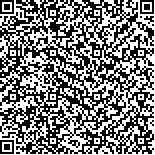| Quote
: |
聂慧芳,钟达源,徐文峰,葛金文.基于Apriori关联规则探讨心肾综合征中药复方组方规律[J].湖南中医药大学学报英文版,2021,41(1):129-133.[Click to copy
] |
|
| |
|
|
| This paper
:Browser 3241times Download 1162times |
| 基于Apriori关联规则探讨心肾综合征中药复方组方规律 |
| 聂慧芳,钟达源,徐文峰,葛金文 |
| (湖南中医药大学中西医结合心脑疾病防治湖南省重点实验室, 湖南 长沙 410208;湖南中医药大学第一附属医院, 湖南 长沙 410007) |
| 摘要: |
| 目的 基于Apriori关联规则探讨治疗心肾综合征(cardiorenal syndrome,CRS)中药复方的组方用药规律。方法 通过检索中国生物医学文献服务系统中国知网、万方数据库和维普数据库,收集治疗CRS的中药复方,采用Apriori关联规则算法进行数据挖掘,分析其中的高频次中药、药物配伍及归经规律。结果 检索文献数据资源共筛选出24个中药复方,涉及84味中药,药物总词频271次,关联结果显示:治疗CRS运用最多的药物是补虚药、活血化瘀药及利水渗湿药;词频最高的药物是茯苓和白术,二阶关联支持度最高的是白术和茯苓配伍,三阶关联支持度最高的是白术和“附子+茯苓”配伍,四阶关联支持度最高的是白术和“黄芪+桂枝+茯苓”、茯苓和“黄芪+桂枝+白术”两组配伍。归经频次显示,中药主要归脾、肺、心、肾经;药物归经二阶关联规则分析支持度最高的是肺脾和胃脾。结论 治疗CRS的中药复方中茯苓、黄芪、桂枝、白术配伍支持度最高,临床当结合辨证,以此配伍为基础进行组方遣药。 |
| 关键词: 心肾综合征 中药复方 组方规律 Apriori关联规则 |
| DOI:10.3969/j.issn.1674-070X.2021.01.024 |
| Received:February 05, 2020 |
| 基金项目:湖南省教育厅项目(18C0370);湖南省研究生科研创新课题项目(CX20190540);湖南中医药大学科研基金项目(2018XJJJ17)。 |
|
| Exploration of the Rules of Compound Prescription of Traditional Chinese Medicine of Mardiorenal Syndrome Based on Apriori Association Rules |
| NIE Huifang,ZHONG Dayuan,XU Wenfeng,GE Jinwen |
| (Key Laboratory of Hunan Province for Integrated Traditional Chinese and Western Medicine on Prevention and Treatment of Cardio-Cerebral Diseases, Hunan University of Chinese Medicine, Changsha, Hunan 410208, China;The First Hospital of Hunan University of Chinese Medicine, Changsha, Hunan 410007, China) |
| Abstract: |
| Objective To study the rules of compound prescription of traditional Chinese medicine (TCM) in the treatment of cardiorenal syndrome (CRS) based on Apriori association rules. Methods Through searching CNKI, Wanfang database and VIP database of China biomedical literature service system, the Chinese herbal compound prescriptions for CRS were collected. Apriori association rules algorithm was used for data mining, and the high frequency of TCM, drug compatibility and the regularity of meridian tropism were analyzed. Results A total of 24 compound prescriptions of TCM were selected through literature and data resources, 84 kinds of TCM were involved, and the total word frequency of drugs was 271. The association results showed that the drugs most commonly used in the treatment of CRS were drugs for tonifying deficiency, promoting blood circulation and removing blood stasis, and diuresis and dampness. The drugs with the highest word frequency were Fuling (Poria) and Baizhu (Atractylodes Macrocephala Rhizoma), the compatibility of Baizhu (Atractylodes Macrocephala Rhizoma) and Fuling (Poria) was the highest in the second-order correlation, the compatibility of Baizhu (Atractylodes Macrocephala Rhizoma) and "Fuzi (Aconiti Lateralis Radix Praeparaia) + Fuling (Poria)" was the highest in the third-order correlation, and the compatibility of the two groups of Baizhu (Atractylodes Macrocephala Rhizoma) and "Huangqi (Astragali Radix) + Guizhi (Cinnamomi Ramulus) + Fuling (Poria)", Fuling (Poria) and "Huangqi (Astragali Radix) + Guizhi (Cinnamomi Ramulus) + Baizhu (Atractylodes Macrocephala Rhizoma)" were the highest in the fourth-order correlation. According to the frequency of meridian tropism, traditional Chinese medicine mainly belonged to spleen, lung, heart and kidney meridians; the highest second-order correlation reliability of drug meridian tropism was the lung and spleen, and the stomach and spleen. Conclusion The association analysis of the CRS prescriptions found that the compatibility of Fuling (Poria), Huangqi (Astragali Radix), Guizhi (Cinnamomi Ramulus), Baizhu (Atractylodes Macrocephala Rhizoma) had the highest degree of support. Clinically, it should be combined with syndrome differentiation and based on compatibility to make prescription and dispatch drugs. |
| Key words: cardiorenal syndrome compound prescription of traditional Chinese medicine rules of compound prescription Apriori association rules |
|

二维码(扫一下试试看!) |
|
|
|
|


